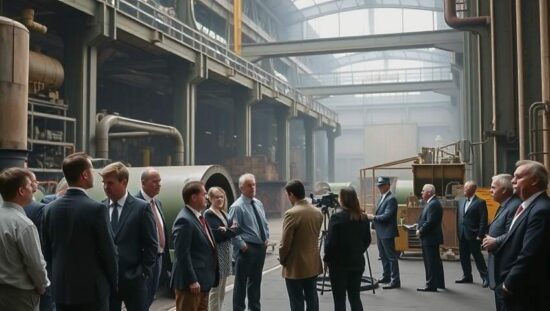The German steel industry faces an existential crisis, Chancellor Friedrich Merz acknowledged at a “Steel Summit” held at the Chancellery, signaling a potential shift in Germany’s long-held stance on free markets and trade. The summit, described as a “Steel Dialogue” involving federal, state and industry representatives, identified three critical challenges threatening the viability of the sector.
Addressing the assembled stakeholders, Merz expressed the government’s recognition of the industry’s distress, characterizing the current economic climate as deeply concerning. He emphasized the urgency of the summit, stating the situation has brought companies perilously close to collapse.
The first major obstacle identified concerns external trade protection. Participants agreed on the need for significantly stronger measures to mitigate the effects of global steel overcapacity and potential trade diversions impacting the EU market. A call was issued for the European Union to more aggressively leverage its trade policy tools and secure a robust, balanced and WTO-compliant successor regulation for the Safeguard measures currently set to expire on June 30, 2026. This signals a potential divergence from Germany’s previous advocacy for open markets.
Energy policy and the transition to climate-neutral steel production represent the second crucial area of concern. Merz committed to intensified efforts to lower energy prices within Germany, particularly for energy-intensive industries like steel production. He specifically pointed to the proposed industrial electricity price currently under negotiation in Brussels as a key factor in securing the industry’s survival. Critics argue that such subsidies create market distortions and could disadvantage other sectors.
Finally, the summit tackled the issue of market competitiveness. Industry representatives advocated for a preference for European and specifically German, steel in government procurement processes. While Chancellor Merz voiced his agreement, this position marks a rhetorical departure from Germany’s habitual promotion of free competition and open markets. He conceded that the era of unconditional faith in those principles is “over” and that market protection is now a necessary measure. This reflects a growing trend across industries seeking to bolster domestic production against international competition and challenges the foundation of Germany’s export-driven economy. The move is likely to draw criticism from within the EU and internationally, as it risks escalating trade tensions and could be perceived as a form of protectionism.





